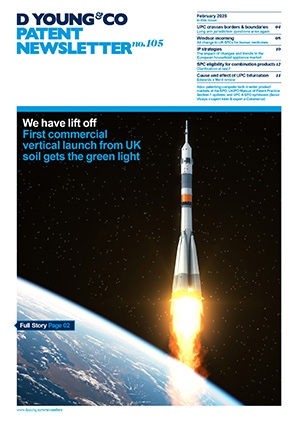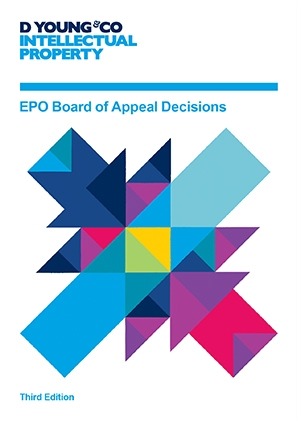New filing strategy opportunities as Germany softens prohibition of double patenting
Germany has amended its double patenting regulations allowing applicants to prepare for the impact of the unitary patent and Unified Patent Court on their current application strategies and strengthening the position of Germany as a litigation location.
For decades, the number of patent litigation cases in Germany has been much higher than Germany’s economic power may suggest in comparison to other major European economies like France, Italy or the United Kingdom. (see https://dycip.com/juve-europe-patent and https://dycip.com/europe-patent-litigation).
This development resulted in a framework of well-established German case law covering a variety of litigation aspects. This framework gives parties in a potential litigation a reasonably good picture of what may be expected during the litigation. Often, the decision of a German court also forms a basis for a settlement in other countries.
The applicants’ trust in the German litigation system is reflected by the high number of validated European patents kept in force in Germany. For example, in 2019 the grant of more than 137,000 European patents has been recorded in the Patent Register of the German Patent and Trade Mark Office (Deutsches Patent- und Markenamt or DPMA) and in May 2022 more than 117,000 of these patents have still been in force (searches in the DPMA Register, only little more than 18,000 patents were granted by the DPMA in 2019 and in May 2022 more than 15,000 of these are still in force). The European route is the preferred option to obtain patent protection in Germany since it combines the benefits of a single prosecution before the EPO with the well-established litigation of its German part before the German courts.
However, filing strategies may look significantly different in a few years.
The unitary patent system is coming and after a transitional period during which the competence of national courts or other competent national authorities can be restored using an opt-out scheme, the Unitary Patent Court (UPC) will have the exclusive competence in respect of actions for infringements of European patents in the participating member states. This exclusive competence of the UPC may result in a significant reduction of patents eligible for litigation before the German courts. Assuming no change in applicants’ filing strategies, this reduction may be in the order of 90 %.
However, there will inevitably be a time period with uncertainty of how the UPC will implement the UPC Agreement. Furthermore, it is unknown how parties in litigation proceedings will assess the decisions of the UPC. Thus, uncharted waters for applicants lie ahead.
Germany has amended its regulations allowing applicants to prepare for the impact of the unitary patent system on their current application strategies and strengthening the position of Germany as a litigation location.
Until the UPC Agreement comes into force, a German patent ceases to have effect to the extent that it protects the same invention as a parallel European patent having the same priority (IntPatÜbkG, Article II section 8). This provision is known as prohibition of double patenting. As a result, in order to obtain the broadest scope of protection by a German patent in addition to a German part of a parallel European patent, the scope of protection of the German patent should have as little as possible overlap with scope of protection of the parallel European patent. It is important to understand that the ceasing of the scope of protection of the German patent cannot be reversed by revocation, withdrawal or limitation of the parallel European patent.
However, once the UPC Agreement comes into force, the situation will change significantly, providing opportunities for new filing strategies: The prohibition of double patenting will be limited to European patents applying the opt-out scheme according to Art. 83(3) UPC Agreement (Gesetz zur Anpassung patentrechtlicher Vorschriften auf Grund der europäischen Patentreform, Artikel 1, lit. c) during the transitional period. The scope of protection of a European patent not applying the opt-out scheme will have no influence on the effect of a parallel German patent.
These new provisions allow the applicant to choose either to opt-out during the transitional period, leaving the situation unchanged with respect to litigation, or to pursue a European patent without applying the opt-out scheme and to obtain a parallel German patent whose effect is not limited by the scope of protection of such a European patent. Thus, the German patent can act as a fall-back option for litigation before the German courts, if the risk of litigation before the UPC cannot be assessed or the case law of the UPC favours a potential infringing party.
To further strengthen the position of applicants, the president of the DPMA announced in her Notice No. 6/2022 the possibility to defer the prosecution of pending German patent applications by requesting an extension of a time limit for replying to a communication in the examination procedures or to request for deferment of the decision on the application. The length of this deferment is limited initially to eight months and to not more than four months after deposit of the instrument of ratification of UPC Agreement by Germany, triggering the process of starting the unitary patent system. The unitary patent system is presently expected to start in the fourth quarter of 2022 or the first quarter of 2023, thus, these provisions appear to be designed to put applicants in the position to evaluate their portfolio strategies before the expected start and to tailor the claims to be prosecuted before the DPMA accordingly.
Conclusion
It may be advantageous for applicants to obtain European patents under exclusive competence of the UPC early in the history the unitary patent system and to participate in shaping the litigation case law of the UPC. However, the lack of case law imposes a risk of unpredictability for early litigation case before the UPC. This risk may be mitigated by prosecution of parallel German patent applications in order to maintain access to the well-established German litigation system.
The changes to Germany’s regulations provide applicants with new opportunities to adapt their filing strategies to the uncertainty associated with the early stages of the UPC. In our opinion, these new opportunities should be carefully considered.



